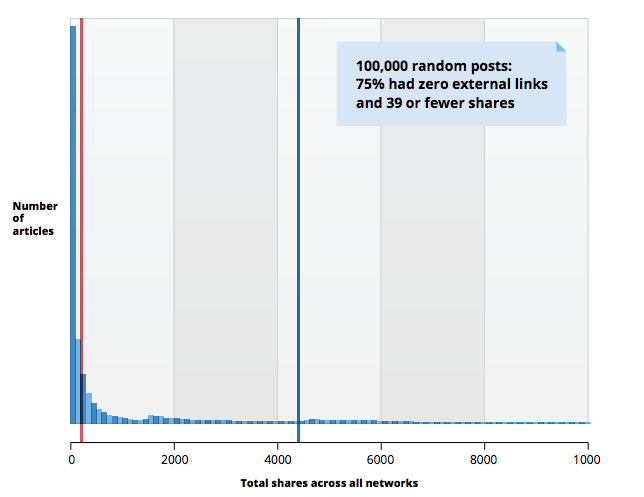Oh no, another pollster at the front door! Will his survey give a true picture of the actual opinions or the participants? That depends on many variables. It’s the same with studies and tests we do for digital marketing and SEO.
In this episode of our popular Here’s Why digital marketing video series, Eric Enge explains the marketing value of doing studies and tests, and offers some tips on how to do them well.
Don’t miss a single episode of Here’s Why. Click the subscribe button below to be notified via email each time a new video is published.
Resources
- Content, Shares, and Links: Insights from Analyzing 1 Million Articles
- See all of our Here’s Why Videos | Subscribe to our YouTube Channel
Transcript
Mark: Eric, can you share with our viewers the reason why Perficient Digital does so many research studies?
Eric: I’d be happy to do that, Mark. We actually get a ton of benefits from them.
First of all, they give us better knowledge about how things work in the industry, and we think that’s really invaluable.
They’ve also led to many speaking opportunities for both of us, and helped enhance our brand reputation, and visibility. Those are all really good things to do. Frankly, it’s led to new business for us, which is great.
The studies also helped us build major media relationships, which feeds more into our brand reputation and visibility.
Finally, I can’t change the fact that I’m an SEO guy, and we get more links as a result of the studies, which is really cool.
Mark: We won’t turn those away.
Eric: Yes, exactly.
Mark: But why should other businesses consider doing this type of research and publishing it?
Eric: Any business, I think, can get this benefit. It really helps to drive brand reputation and visibility. And, of course, there’s the links to your site. The thing is that research studies play a unique role in that regard.
A study was done by Moz and BuzzSumo that you and I have cited many times, where they looked at a million articles online to see what the correlation was between links and social shares. The idea is, if you get content that gets both of those, there’s a pretty good chance that it’s authoritative and it’s the real deal, rather than if it’s just one metric or the other is working for you.
They found literally zero correlation between social shares and links when looking at the million studies in aggregate.

But when they actually narrowed that down to some very specific areas and different groups of sites to find out which ones actually showed a strong correlation, they found two remarkable things. Major media sites that put out opinion-forming journalism get a very strong correlation between shares and links. That’s kind of cool to know, but most of us are not major media sites, so maybe that won’t work so well for us.
Although, it’s a good idea to work to build your reputation to a point over time where you actually do have the kind of reputation where people care about your opinion. But you’re not going to get that on day one, even if you’re an established brand; it’s not instantaneous.
Mark: Sure.
Eric: The other thing that they saw in the study was that sites that had a lot of research content, like Pew Internet, did extremely well with the correlation between shares and links. And that actually lines up very much with what we’ve seen in our own efforts.
[Tweet “Sites with lots of data-based research studies tend to do better with both link earning and social shares. Find out how to copy what they do!” quote=”Sites with lots of data-based research studies tend to do better with both link earning and social shares.”]
The bottom line of why this is important: if you do really high-quality research and publish it, you can actually earn credibility, whereas with opinion-forming journalism, you have to build the credibility first. So, it can help you get that credibility you’re looking for.
How to Create Research Study Content
Mark: It seems to me what’s probably stopping a lot of people is how to go about picking a topic for a study or a test.
Eric: Really the core thing to do is to start with the right upfront research. You need your topic to be something that is going to stand out and be unique enough and different enough from what other people have done out there that it will attract attention.
Obviously, core to this as well is it has to be of significant interest to the market. Because the market doesn’t care, and there are lots of things that you could publish that are unique where they won’t care.
Then, you have to be able to execute it. You can have the vision and think, “Wouldn’t it be wonderful, I have this data?” But you might not be able to actually execute it.
Finally, you have to be able to bring some credibility to it and, just so we don’t confuse this with the point I was making before, the way you go about executing it is a big part of how you bring credibility to it. You’ve got to be able to do that.
[Tweet “High performing research study content 1) starts with a great topic of study 2) is executed properly 3) comes from a credible source. Learn more at” quote=”High performing research study content 1) starts with a great topic of study 2) is executed properly 3) comes from a credible source”]
How to Conduct a Data Research Study
Mark: Let’s focus on that for a moment. What are some things that you think are critical to the execution stage of a study?
Eric: There are a few different things that you really need to think about.
The first is you have to have a solid plan for collecting the data. If you’re doing a survey, then how are you going to get your audience is one thing to think about. Or, if you’re looking at correlations between something like links and social shares, how are you going to collect that data?
You need to know that you can get the data in a clean and pure form. And then, you need to find the right sources to get that data in enough volume so it’s statistically significant. Don’t take one example of something and say, “Oh, I’ve seen this thing happen. When I did this, that happened. I saw it once; therefore, it happens that way all the time.” It has to be in depth and credible.
Then, when you analyze the data, you need to inspect it ruthlessly to make sure it’s clean and it makes sense. We do this all the time in our studies, and I do a lot of this work personally. As I really dig into the data I’m always asking questions. “No, that data doesn’t make sense. Check into it.”
Once you’ve done that, you have to ignore your biases. For example, when you entered this study, you probably had a specific conclusion in mind that you were looking for, but, as I like to say it, you have to let the data tell the story. If you don’t do that and you let your biases interfere, then you’re putting your credibility on the line.
You’ve got to tell the story in a fair and balanced way. Don’t leap off the deep end just because you get something that suggests something might be true. If you can’t do all of those things, people will know. I’ve seen some very reputable organizations and people publish studies where they didn’t follow through on all these principles, and they took a lot of heat for it, and they didn’t get the result they were looking for.
Mark: Great points. Anything else you want to add?
Eric: There’s one other major thing to think about. It’s all well and good to create this wonderful content and publish it, but it isn’t really going to do much for you unless you promote it effectively. You have to invest in your promotion plan as well, and that is something that you want to begin doing well before you publish the study.
Also, you need to know who the people are that you want to get interested in sharing on social media, and you need to know who might write about it. Do research on all of these. Ultimately, use social media to reach out to those influencers. Then reach out to the media people before it publishes.
When you do this kind of outreach, please, please, please don’t use a minimally-customized e-mail sent out as a blast to a bunch of people. Customize every single piece. I promise you, your effort per yes will go up if you send fewer pieces and do a lot more customization. It’s incredibly important. But then you have to start this process of outreach at least a week or so before the study publishes.
Here’s a quick hack. Reach out to a limited number of media people and offer them the content under embargo. Media people like that. They’re getting privileged access in advance, which increases the chance that they’re going to write about your content.
Mark: Thanks, Eric.
Don’t miss a single episode of Here’s Why. Click the subscribe button below to be notified via email each time a new video is published.
See all of our Here’s Why Videos | Subscribe to our YouTube Channel

